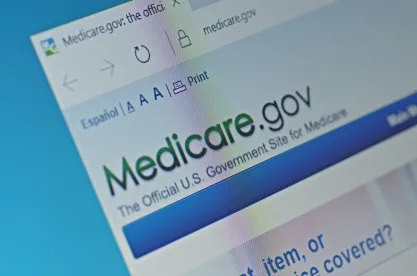-
During Session 3 of the Let’s Talk Compliance series, PYA principal Valerie Rock and Foley and Lardner partner Michael Tuteur spoke about the changing landscape related to government scrutiny and oversight around Medicare Advantage (MA) plans and their payments. Key areas included:
- A definition of MA, as well as foundational differences between it and Fee-for-service (FFS) Medicare, otherwise known as “traditional” Medicare.
- How payments for medical services flow from the payer to the provider in an MA plan.
- The differences in reimbursement between MA and FFS Medicare, as well as how those differences affect compliance with regulatory requirements.
- Data requirements for reporting within an MA plan, along with the associated risk factors and potential scenarios that impact the accuracy of that data.
- Results of the April 2022 Department of Health and Human Services’ Office of Inspector General (OIG) study around the capitated payment model.
- Notable changes to the MA program in Contract Year 2024.
- Increased interest in MA plans and payments, and subsequent scrutiny by the U.S. Congress, the OIG, and the Centers for Medicare and Medicaid Services (CMS).
- Proposed additional changes for Contract Year 2025 and their possible impact on the MA plans.
Tuteur and Rock expand on two of the key considerations discussed below:
Should providers add MA plan focused reviews to their compliance work plans?
As providers develop and modify their compliance work plans in 2024 and going forward, they will need to assess the cascading risk of CMS’ new requirements for MA plans to follow CMS or their own published guidance. Historically, we considered MA plans much like commercial payers and did not escalate the risk to the risk level of traditional Medicare and Medicaid claims. We typically used Local Coverage Determinations (LCDs) and National Coverage Determinations (NCDs) to provide general guidance for potential coverage expectations but understood that the LCDs would not be the standard or criteria by which the service was considered covered or not. For the most part, the MA plans followed the commercial plans’ more expansive coverage. However, the opposite could be true if the plan did not cover a service more arbitrarily. MA plans are paying for the services rendered with federal government funds; however, the payer and provider responsibility under the Overpayment Rule (also known as the “60 Day Rule”) and the Federal False Claims Act (FCA) are being contemplated (as described further below). So, while CMS, Congress, and the Supreme Court move toward a conclusion on the matter, responsibility will continue to be a part of current enforcement dialogue. All things considered, it would be prudent to include MA claims in government reviews, base MA reviews on current and active coverage policies, and ensure errors are assessed separately from Medicare claims populations. Conflating the two populations of claims is likely to result in the risk of overstating the error of one population if the coverage requirements are actually different – e.g., when the MA plan publishes a policy for coverage that is not also published by Medicare or is different from the published LCD.
A Key Issue Involving the Federal Anti-kickback Statute (AKS) and FCA May be Resolved Soon – or Not:
An issue that has been brewing for the past few years – the nature of the causal relationship between alleged violations of the AKS and FCA – is reaching a boiling point. In two recent cases in the District of Massachusetts, U.S. v. Teva Pharmaceuticals and U.S. v. Regeneron, the judges applied dramatically different interpretations to that relationship, following an already-existing split in the Circuits on the same point. The crux of the issue is whether a violation of the AKS establishes a per se violation of the FCA if there is some link between the two; or if, instead, the violation of the AKS needs to be at least a but for cause of the alleged false claim. The difference between which causation ultimately wins could have enormous consequences for FCA damages: if all the Government (or qui tam relator) must prove is a link, then otherwise minor causal connections could yield millions (or even billions) of dollars of damages that were allegedly associated with that link. But if the Government must prove actual but-for causation between the kickback and the claim, damages will only be assessed on those false claims directly in the causal chain. Presently, the Third Circuit has adopted the link formulation, while the Sixth and Eighth have insisted on but-for causation. The First Circuit agreed to accept the two District of Massachusetts cases on interlocutory appeal, and a decision is expected later this spring or early summer. Regardless, it appears likely that the Supreme Court will get the final word on this significant issue within the next year or two.
“Let’s Talk Compliance”: Medicare Advantage: Compliance Issues and Enforcement
Tuesday, March 12, 2024
Current Public Notices
Published: 9 September, 2025
Published: 9 September, 2025
Published: 8 September, 2025
Published: 4 September, 2025
Published: 28 August, 2025
Published: 25 August, 2025
Published: 22 August, 2025
Published: 20 August, 2025
Published: 20 August, 2025
Published: 18 August, 2025
Published: 11 August, 2025
Published: 8 August, 2025
Published: 26 June, 2025




 />i
/>i

